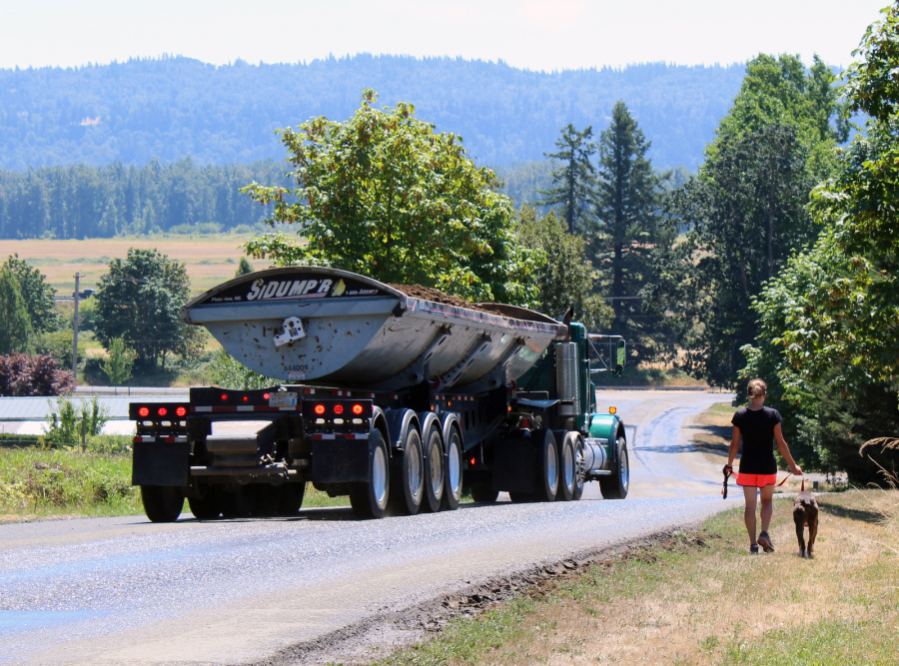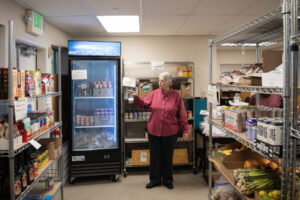The Clark County Council has unanimously approved a recommendation to deny a proposal from a Ridgefield-based mining company to redesignate a private residential road in rural Washougal as a public thoroughfare, delivering another blow to the company’s long-standing hopes of resuming mining activity in the area.
“It wasn’t surprising,” Nathan Baker, an attorney for the Friends of the Columbia Gorge (FCG) nonprofit organization, said about the decision, which the Council made during its meeting on July 16. “It was really the only potential outcome. The Council definitely made the right decision here. We referred to this (proposal) as a Trojan horse loaded with problems.”
Ridgefield resident Judith Zimmerly, the owner of the sand and gravel operation known as the Washougal Pit, filed a proposal with the County in 2021 to dedicate Southeast 356th Avenue as a public mining-haul road in an effort to resume mining operations at the Pit, which was illegally mined by the Vancouver-based Nutter Corporation from late summer 2017 until the summer of 2020.
The paved, private road is east of the Washougal city boundary; runs northerly approximately 2,200 feet from Southeast Evergreen Highway; is part of or adjacent to 15 separate parcels, including the Washougal Pit; and provides access for eight residential homes.
“If Zimmerly didn’t want to mine, they would have withdrawn that (road redesignation) application,” Baker said. “The fact that they proceeded with it and took up everyone’s time and energy, I think, is an indication that they are not giving up.”





